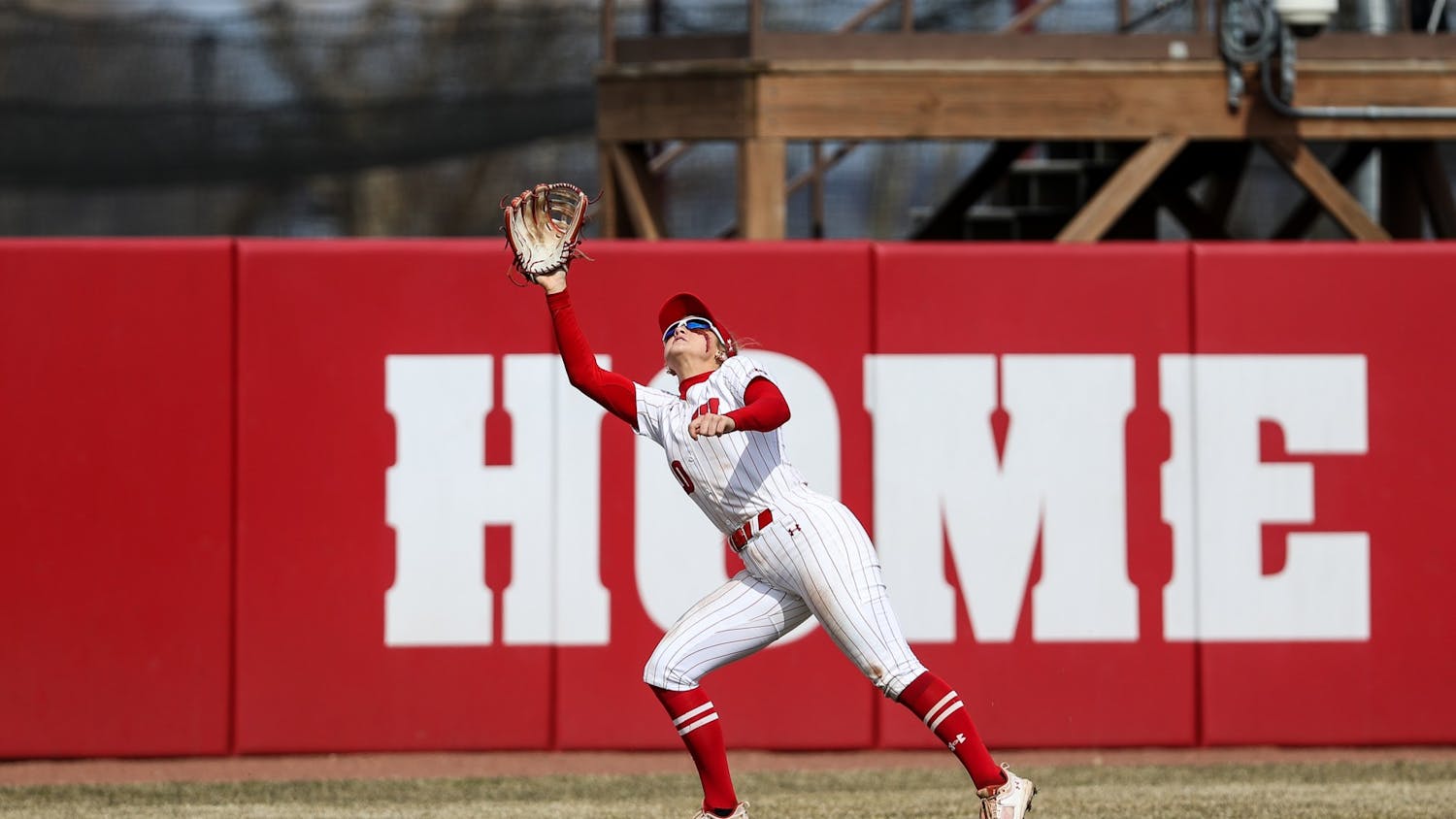Throughout this 2016-17 campaign, the Badgers have often been plagued by defensive zone mishaps that have turned into uncontested goals for their opponents. Although Wisconsin has played much better in their defensive zone as of late, they have still had some stretches where their defensive zone coverage has been susceptible to breakdowns.
UW collapses in their defensive zone and leaves a wide open PSU player in the slot who buries it. Bad D Zone coverage. 2-0 PSU lead
— DailyCardinal Sports (@Cardinal_Sports) February 11, 2017
While it easy is easy to assume that defensive zone breakdowns are a product of bad positioning by the Badgers defensive corps, it is instead often the forwards not getting back in transition that leads to goals for the opposing team. The forwards being late on the back check and missing their defensive zone assignments was a big part of why Penn State scored a combined 11 goals in two games last weekend.
“I think once we fell behind I think we tried a little bit too hard offensively. We thought we had to score the next shift and I think that exposed us and we made some mistakes and left our D kind of stranded out there,” head coach Tony Granato said. “That was the biggest thing. We probably tried to force plays and that gave them the opportunity to get going a little.”
Specifically, on the back check, the Badgers forwards are instructed to cover from the inside of the ice, out. The Badgers forwards this year, however, have sometimes been chasing from the outside, in, giving their opponents lanes to attack the net, rather than forcing them away from their own crease.
“It’s easy to play D zone from the inside out. When you’re coming from the outside to scramble to get back inside the puck, it’s much more difficult, so if you do come back in your end properly through the middle, it’s easy to play,” Tony Granato said. “It’s something that we have worked on all year to get better at, and I thought Penn State did spread us out a little bit.”
Still, even when the Badgers do back check properly through the middle, they are still susceptible to bad coverage in the defensive zone. Once the Badgers clear the puck from a rush into the corner, they sometimes start to chase the puck and forget their positioning, leaving opposing forwards wide open in front of their goalie. When the Badgers aren’t skating as intently as the other team, which was the case against Penn State, they start to chase the puck, leaving holes in their coverage in front of their net.
“They were a hungrier team than we were last weekend. They were ready to play at a greater level than we were. They were a little bit more determined, and obviously we were a little less so,” assistant coach Don Granato said. “And when you do that, you start chasing the game."
But playing sound defensive hockey, including staying home, not chasing and having a solid back check is just a start. After that, both the forwards and the D that are in position need to execute and make the right play, including not turning the puck over, like they often did against Penn State.
“I would say those aren’t systematic issues, those are blunders. Just straight blunders. It’s not really a systematic breakdown, it’s concentration breakdown. That might be saying the same thing in a different way, but it’s more of a guy just not bearing down and not focusing,” Don Granato said. “We have had lots of unfortunate turnovers, but when you have a turnover, it’s like football, it’s highly likely they are going to score against you.”
Going forward against Michigan, the Badgers will need to clean up their defensive zone coverage, starting with good positioning from the forwards. If the forwards get back and play inside-out defensive hockey, the Badgers defense will likely be able to handle anything the the Wolverines throw at them.
“I think that’s the thing, our D, like any other D, need support from the forwards. And if they get it, our D are good, if they don’t get it, we’re ordinary,” Tony Granato said. “I think that has been the biggest thing. Your group has to play as a group of five defensively, and when we do that, our D are pretty darn good.”






